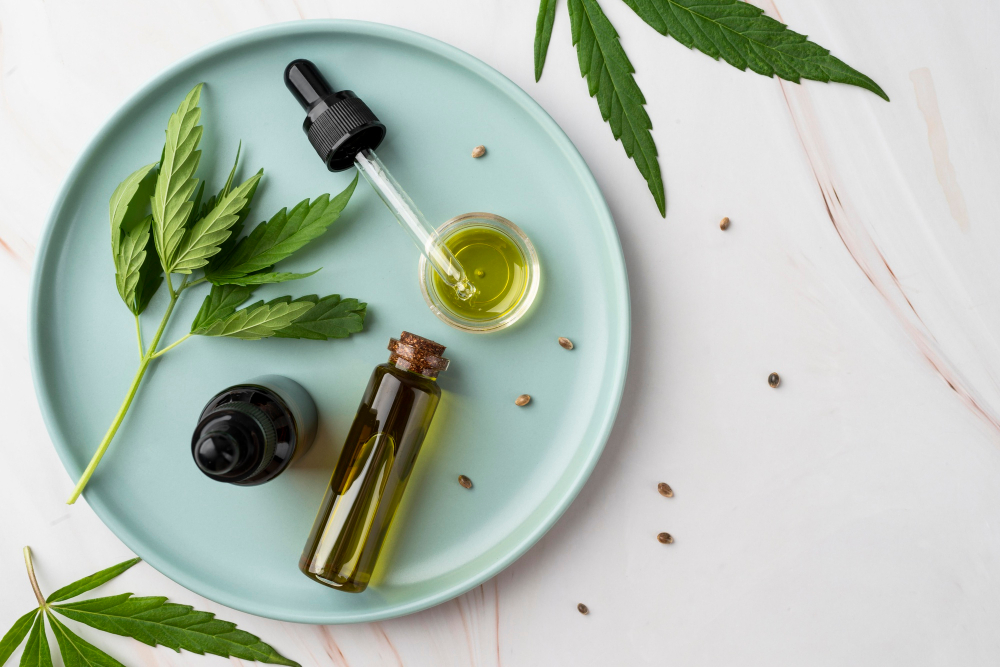
Is it truly possible to carve out a piece of the billion-dollar CBD industry for yourself by selling online? Absolutely, but it's not as simple as setting up a website and watching the orders roll in.
There's a lot you'll need to consider, from understanding the regulations around selling CBD products to finding reliable suppliers and effective marketing strategies. While the opportunity is significant, so too are the challenges.
But don't worry, we're here to guide you through every step of the process, enabling you to build a successful online CBD business.
Curious to learn more? Let's dive in.
Key Takeaways
-
Establishing a strong online presence is crucial for selling CBD products successfully.
-
Compliance with federal and state laws regarding THC content and marketing regulations is essential to avoid issues.
-
Partnering with reputable CBD wholesalers and suppliers from regions like the US, Canada, or Europe ensures product quality.
-
Utilizing e-commerce platforms like Shopify and BigCommerce, along with specific payment processors for high-risk industries, is recommended for CBD sales online.
Understanding CBD Business Basics
Before jumping into the CBD business, it's crucial to grasp the basics of the industry and understand what CBD is. CBD, short for cannabidiol, is a compound found in cannabis plants. Unlike THC, another compound found in cannabis, CBD doesn't cause psychoactive effects. Instead, it's believed to offer potential health benefits, like reducing anxiety and relieving pain.
Another key point is that hemp-derived CBD products are legal at the federal level in the U.S., as long as they contain less than 0.3% THC. This has opened up a massive market, with the CBD industry projected to reach a whopping $22 billion by 2024.
But before you dive in, it's important to get to grips with the regulatory landscape. You'll need to ensure your CBD products are labeled as dietary supplements and that they comply with FDA regulations. For instance, you can't add CBD to food or beverages. Also, don't make medical claims about your products, as scientific evidence is currently insufficient. Finally, ensure your packaging is child-resistant, protects from light and air, and clearly labels CBD content.
Regulatory Compliance and Requirements
As you navigate the CBD business, it's vital to understand and comply with the regulatory requirements. The FDA regulates CBD, so you must label your products as dietary supplements. You can't add CBD to food or beverages per FDA dictates.
Most states stipulate that CBD products have a THC content of 0.3% or less. You'll need to verify this through third-party lab testing. It's essential you avoid making health claims about your CBD products due to insufficient scientific evidence. The FDA has been clear on this, and ignoring it can lead to legal trouble.
Packaging is another area of concern. It must be child-resistant, protect the product from light and air, and clearly label the CBD content.
Moreover, don't forget to obtain a business license for selling CBD online. This requirement varies by state so it's crucial to research your local laws.
Lastly, keep abreast of changes in regulations. In this rapidly evolving industry, what's legal today may not be tomorrow. Staying compliant protects your business and keeps you on the right side of the law.
Product Development and Market Research
Once you've got the regulatory side of things under control, your next step is to focus on developing your product line and conducting market research. Product development is crucial in the CBD industry. It's not just about offering oils; consider diversifying your product range with edibles, topicals, tinctures, and vape products.
Here's what you need to consider:
Product Types:
-
Oral products like oils and edibles
-
Inhaled products such as vapes
-
Topical products, e.g., creams and balms
Next, source your CBD from reputable suppliers. Always conduct product testing for potency and purity.
Quality Control:
-
Source from reputable suppliers
-
Conduct product testing
Market research is equally important. You need to understand your target market, identify your unique selling points, and keep an eye on your competitors.
Market Research:
-
Define your target market
-
Identify your unique selling points
-
Analyze your competitors and market trends
Sales and Distribution Strategies
Now, let's talk about your sales and distribution strategies.
You'll need to enhance your online presence and also ensure you're managing inventory in compliance with regulations.
These are crucial steps in successfully selling CBD online.
Online Presence Enhancement
To effectively sell CBD online, you need to build a robust online presence that showcases your products and engages potential customers. This requires a well-designed website, active social media profiles, and a strong SEO strategy.
Website Design
-
Ensure your website is user-friendly and aesthetically pleasing.
-
Include detailed product descriptions and high-quality images.
-
Offer secure and diverse payment options.
Social Media Marketing
-
Regularly post engaging content to build a following.
-
Use platforms like Instagram and Facebook to promote your products.
-
Engage with your audience through comments and messages.
SEO Strategy
-
Use relevant keywords to improve your website's search engine ranking.
-
Create valuable content that attracts traffic.
-
Optimize your website for mobile use.
Inventory Management Compliance
Keeping track of your CBD product inventory accurately is critical for ensuring regulatory compliance and successful sales. A well-managed inventory system can help you avoid overselling or underselling, ensuring that you're meeting customer demand without running afoul of regulations. Implement a robust inventory management software that can handle tracking of CBD products. Regularly update it with new batches, their THC levels, and the date of manufacture.
Moreover, it's important to maintain accurate records of your sales. Since CBD products have a limited shelf life, it's crucial to monitor closely to avoid selling expired products. Lastly, always keep your inventory reports ready for inspection by regulatory authorities. This will help keep your online CBD business compliant and successful.
Financial Planning and Budgeting
When launching your CBD online store, it's essential that you carefully plan your finances and budget. It's not just about the initial investment, but also about the ongoing costs and the potential return on investment.
Here are some key areas you should focus on:
Budgeting
-
Determine your startup costs which include inventory, website setup, and marketing efforts.
-
Calculate your operational expenses such as rent, utilities, and employee wages.
-
Plan for unexpected costs as they're inevitable in any business.
Pricing Strategy
-
Set competitive prices for your CBD products. Consider your cost of production, market demand, and competitor pricing.
-
Don't forget to factor in shipping and taxes.
Financial Projections
-
Estimate your revenue. Be realistic and base your estimates on market research.
-
Monitor your cash flow regularly. Positive cash flow is key for business sustainability.
-
Seek funding options if needed. Explore small business loans, investors, or crowdfunding.
Marketing and SEO for CBD Businesses
Now that you've got your financial planning in order, let's focus on marketing and SEO for your CBD business.
Understanding proper SEO practices and effective digital advertising can greatly impact your online presence.
Let's explore how you can use these strategies to boost your CBD sales.
SEO Best Practices
As you navigate the competitive landscape of CBD businesses, understanding SEO best practices can significantly boost your online presence and sales. It's not just about having a great product, you need to ensure potential customers can find you.
Keyword Research:
-
Understand what your potential customers are searching for.
-
Use tools like Google Keyword Planner or SEMrush to find relevant keywords.
On-Page SEO:
-
Optimize your website's content and HTML source code.
-
Include keywords in your meta tags, headers, and content.
Link Building:
-
Establish connections with other websites to earn backlinks.
-
Guest blogging and social media promotion can help you build links.
-
Buying CBD backlinks. (Learn more here)
Effective Digital Advertising
Diving into the world of digital advertising, you'll find it's a critical component in marketing and SEO for your CBD business. Harness the power of social media platforms like Facebook, Instagram, and Twitter to reach your target audience.
Create engaging content that sheds light on the benefits of your CBD products, without making unproven health claims. Use SEO to improve your website's visibility on search engines, incorporating keywords related to CBD and your products.
Don't overlook email marketing as a tool to retain customers and keep them informed about new products or deals. Lastly, consider pay-per-click advertising to drive traffic to your site. Remember, consistency is key in digital advertising. Stick to your strategies, and you'll see growth.
Conclusion
You've got this! Armed with the basics of CBD, regulatory knowledge, product development tips, sales strategies, and financial planning insights, you're ready to dive into the CBD market.
Remember, effective marketing and SEO are key. Now, go forth and conquer the online CBD world! This exciting industry awaits your unique contributions.








